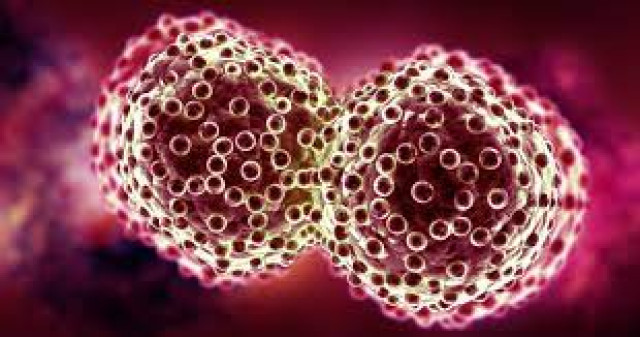Cancer, a highly lethal disease that has plagued the world, encompasses a wide range of diseases that can originate in various organs or tissues of the body.
The World Health Organization (WHO) reports that it is the second most common cause of death worldwide. Additionally, WHO stated that in 2022, there were approximately 20 million new cases of cancer and 9.7 million fatalities.
The disease exerts tremendous physical, emotional and financial strain on individuals, families, communities and health systems, shrinking resources as it strikes the rich, poor, young, old and now even children.
In order to alleviate the challenges of cancer treatment in Nigeria, the federal government has implemented various interventions aimed at benefiting patients.
According to the Minister of State for Health, Tunji Alausa, the country has prioritized the entire spectrum of cancer care.
This includes focusing on cancer prevention, treatment, supply chain management, Hospice and Palliative care, advocacy and social mobilization, data management and research, as well as governance and finance.
These efforts are part of the government's four-point agenda, which also aims to improve healthcare governance, enhance population health outcomes, unlock the healthcare value chain, and ensure health security for Nigerians.
Mr. Alausa also highlighted that the federal government has allocated N200 million for the treatment of financially disadvantaged cancer patients in the 2024 budget through the Cancer Health Fund (CHF), demonstrating its dedication to reducing the burden of cancer.
He stated that over the past four years, the federal government has allocated N1.3 billion to the Cancer Health Fund (CHF).
However, he acknowledged that this amount may not be sufficient to meet all the healthcare needs of Nigerians, but the ministry is working on securing additional funds through a collaborative approach involving the private sector.
He clarified that the National Health Insurance Authority (NHIA) will oversee the funding for cancer care in order to prevent overlapping responsibilities in procuring services for patients.
The NHIA Act guidelines were recently launched to facilitate the full implementation of the Act, which includes funding provisions for vulnerable Nigerians, including those with cancer. Additionally, a Memorandum of Understanding (MoU) was signed between the federal government and the Nigeria Sovereign Investment Authority (NSIA) to support the procurement of cancer management equipment.
The Coordinating Minister of Health and Social Welfare, Ali Pate, emphasized the significance of upgrading equipment in the six cancer centers located in teaching hospitals across the six geopolitical zones of the country as a major achievement.
He highlighted that this would put an end to the distressing experiences faced by numerous Nigerians in accessing cancer care.
He observed that the government had previously set up an oncology initiative with other hospitals, but it was unsuccessful over the years.
He clarified that the initial allocation for teaching hospitals four years ago was N17.9 billion, and in 2024, the federal government allocated N20 billion, making a total of N37.9 billion.
Mr. Pate stated that the NSIA would provide technical expertise, experience, and a governance system, leveraging its relationship with cancer equipment manufacturers.
He highlighted the NSIA's role in directly engaging with manufacturers, eliminating middlemen and obtaining nearly a 30% discount on equipment, resulting in savings of almost N10 billion.
He mentioned that President Bola Tinubu upgraded six Federal Tertiary Health Institutions with modern Brachytherapy and Nuclear Medicine equipment and other supporting facilities.
Usman Aliyu, the director-general of the National Institute for Cancer Research and Treatment (NICRAT), emphasized the need for further efforts to improve cancer treatment in Nigeria.
He stressed the progress made in raising awareness about cancer causes, symptoms, and prevention to reduce late-stage diagnoses and improve early detection rates across the country.
Mr. Aliyu also highlighted the expansion of interventions beyond Nigeria, including the involvement of First Lady Oluremi Tinubu in organizing regional seminars to promote cancer awareness and advocacy programmes within the Organisation of African First Ladies for Development.
He mentioned that the initiatives extended beyond the country's borders and were expanded to the continent, with the involvement of the First Lady, Oluremi Tinubu.
She arranged a high-level regional seminar to raise awareness and promote advocacy programs in the African Member States of the Organisation of Islamic Cooperation (OIC). At the seminar, she urged for united efforts to combat cancer in Africa and strive to eradicate it by 2030.
She restated her dedication to decreasing the prevalence of cancer through effective preventive measures. The first lady emphasized her commitment to leading advocacy for innovative approaches to cancer prevention and early detection, while the federal government focused on the diagnostic and treatment aspects of cancer care. She expressed her support for preventive measures and early detection approaches to preventable and curable cancers in Nigeria.
To emphasize her belief in the importance of prevention, she introduced the Human Papilloma Virus (HPV) Vaccine for cervical cancer prevention in October 2023.
The launch signaled the start of including HPV vaccines in routine immunization by the National Primary Healthcare Development Agency (NPHCDA). She highlighted that over nine million girls have been fully immunized since the vaccine's launch in October.
In terms of legislation to advance cancer care, Speaker of the House of Representatives, Tajudeen Abbas, assured that the National Assembly (NASS) would collaborate with the First Lady to enact a law for prevention in Nigeria.
He pointed out that financial barriers, high treatment costs, and lack of health insurance prevented many from accessing necessary care.
He also emphasized the need for comprehensive strategies to address cancer, including promoting screening, early diagnosis, and treatment advancements.
As representatives of the people, the House of Representatives and the National Assembly recognized their role in the fight against cancer.
They pledged to work with the First Lady to enact a National Cancer Act aimed at reducing cancer mortality through comprehensive measures.
These measures would include the promotion of screening, early diagnosis, and treatment advancements.
NAN




















